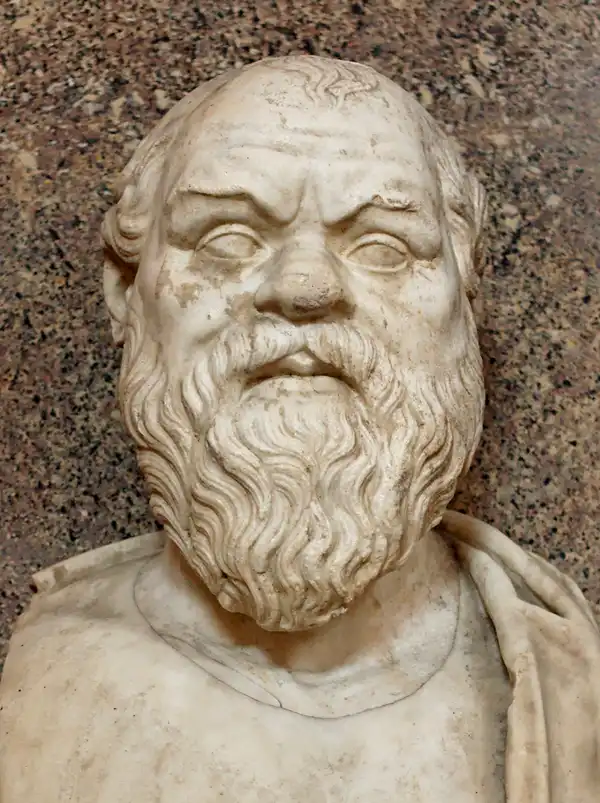Socrates is the theory's saint. Condemned to death in 399BC Athens for 'debasing the personalities of the adolescent,' Composed recorded nothing. We are aware of his period characterizing thinking just through the works of his peers, especially his understudy Plato.
Plato's Socratic discoursed — the absolute most awesome works throughout the entire existence of reasoning — include Socrates in exuberant discussion on a wide scope of subjects, from equity and ethicalness to craftsmanship and governmental issues. The focal topic in Socrates' reasoning, nonetheless, concerned the idea of information — explicitly, on how none of us truly have any. As an assertion frequently ascribed to Socrates puts it:
Genuine insight goes to every one of us when we understand how little we comprehend about existence, ourselves, and the world around us.
During Socrates' life, the Oracle of Delphi broadcasted him the smartest surprisingly. Socrates, consistently pronouncing outright obliviousness as he did, couldn't concur. He hence set out on a journey to discover somebody smarter to refute the Oracle.
Raising a ruckus the Socratic strategy
Socrates drew nearer compelling Athenians thought about shrewd by individuals of the day — legislators, writers, and instructors. He spoke with these people utilizing what is presently known as the Socratic strategy, a type of helpful exchange that utilizes sharp addressing to animate basic reasoning and draw out presuppositions.
A more clear approach to contemplate the Socratic technique is to envision a constantly inquisitive kid inquiring as to 'why' after each and every clarification grown-up offers, looking for a really central reaction to an inquiry instead of a perpetual chain of inadmissible causal thinking. Lamentably for Socrates, being a broadly terrible grown-up male, he was not managed the cost of a similar decent beauty a youngster may have been.
Socrates
Envision this man perpetually criticizing each guarantee you make.
By utilizing his technique for endless addressing, Socrates before long found that truth be told, no one truly knew at least something about anything they professed to know — be it on craftsmanship, morals, governmental issues, equity, oneself, or the real essence of our general surroundings. He in this manner finishes up, as announced in Plato's Apology, that the Oracle of Delphi might have been solidly in her judgment of his wisdom:
As far as concerns me, as I disappeared, I prevailed upon respect to myself: I am smarter than this individual. For likely neither of us knows anything honorable and great, yet he guesses he knows something when he doesn't have the foggiest idea, while I, similarly as not know, don't assume that I do. I'm probably going to be somewhat smarter than he in this very thing: that whatever I don't have a clue, I don't assume I know.
As such, Socrates trusts himself to be savvier than those he addresses on the grounds that, in contrast to them, he concedes his obliviousness. This contemplation is embodied by the perplexing assertion:
I realize that I know nothing.
Known as the Socratic mystery, this expression isn't one that Socrates is recorded as saying, yet thought to be gotten from the section in Plato's Apology laid out above.
Notwithstanding, it's a huge assertion for epistemology, the part of reasoning worried about the hypothesis of information. Socrates' conversations more than 2,000 years prior put into high gear the significant questioning, the vulnerability concerning what we can know — the vulnerability regarding whether the establishments for human information eventually lay on something besides custom and custom — that went to the front with seventeenth-century rationalist René Descartes' popular cogito consequently total.
Irritating individuals to death
Socrates' inability to discover anybody savvier than himself, however maybe respectable in its quest for information, made a ton of influential individuals in Athens look exceptionally stupid. Demise is a brutal discipline, however, it is maybe not unexpected that authority figures needed Socrates quieted.
Plato's The Last Days of Socrates, which incorporates discoursed covering Socrates' detainment, preliminary, and demise, uncovers how Socrates continued irritating his informers until the end, with great compositions on equity, devotion, and the benefit of addressing what we know. For a greater amount of Plato's best works portraying the way of thinking of Socrates, look at our Plato understanding rundown.
All that we think about Socrates, introduced as he is through the works of others, should be taken with a touch of salt. Regardless, his inheritance as the splendid saint of theory stays secure, enhanced through his very own inscription effort:








0 Comments